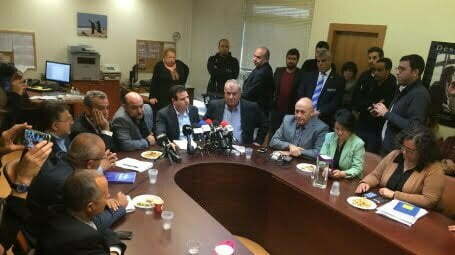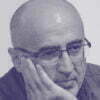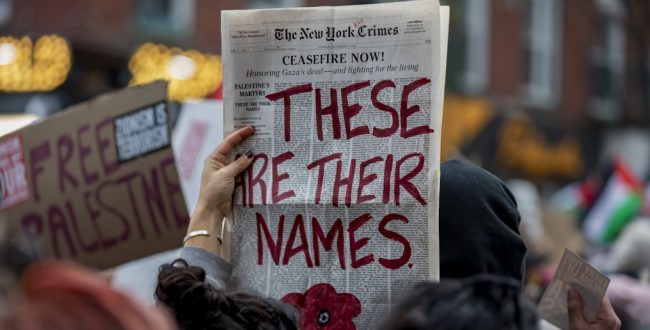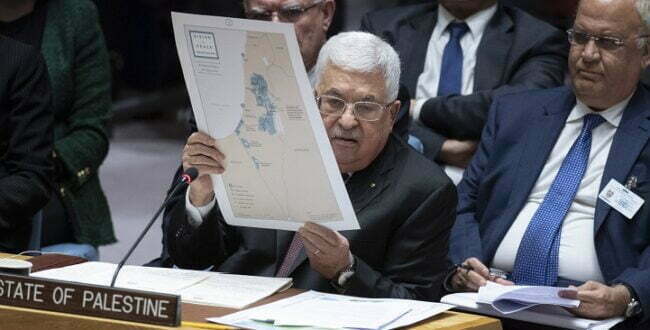The recent visit to the US by Ayman Odeh, leader of the Joint List, caused quite an uproar in Palestinian society within Israel. While this says almost nothing about Odeh, it speaks volumes about the state of Arab politics in Israel. The criticism levelled at Odeh over his first visit to the US as an Israeli parliamentarian did not come from his political rivals, nor from bored readers or mediocre journalists; in fact, most of it emanated from the Communist Party of Israel – the largest faction within the Hadash Party (the Democratic Front for Peace and Equality).
Among supporters, Odeh’s move was defended as an opportunity to work miracles and bring the narrative of Palestinian Arabs in Israel, and the Palestinian question in general, before important audiences in the US. Critics, on the other hand, saw the visit and the circumstances in which it took place as yet another conspiracy against the Palestinian question and against Arabs in Israel. Some even held Odeh in contempt for his cooperation with Satan – i.e., the United States.
The visit came about due to Odeh’s inclusion in Foreign Policy’s list of “Leading Global Thinkers of 2015”. The young politician’s packed itinerary consisted of meetings with government officials, senators, public figures and various organizations – theoretically, an excellent stepping stone for promoting issues important to voters and advancing Odeh himself, as a leader on the rise. How unfortunate that Arab politics in Israel don’t work that way: once again, we see a demonstration of the politics of an oppressed minority that has adopted bad habits. According to this logic, the world and political reality derive solely from the limited world of the oppressed. Therefore, Odeh can be one of two things: a national hero bringing the voice of the oppressed before the leaders of the US, or a despicable collaborator betraying the oppressed by paying a visit to Satan himself.
The structure of political organizations in Arab-Palestinian society in Israel is both narrow and dogmatic. The Communist Party, for instance, still adheres to the Leninism spurned by its counterparts across the globe and in the Arab world, pins all hope on Putin’s autocracy and throws a tantrum at the slightest mention of the US. Yet the ideological criticism of Odeh’s visit is coming from his political partners in Hadash – his closest friends. With friends like that, who needs enemies?
Almost all members of Knesset (MKs) from the Joint List said nothing, their silence loudly proclaiming the state of Arab politics in Israel and specifically within the Joint List. Former Hadash MK Muhammad Barakeh, who was recently chosen to chair the High Follow-Up Committee for Arab Citizens in Israel, was most jarringly mute. Although Hadash vigorously denied accusations that Odeh’s visit was funded by donations from a Jewish-American citizen, the party’s council nonetheless barred Odeh from participating in the Saban Forum on the irrelevant grounds that Saban is a Zionist. MK Ahmad Tibi was the only one to defend Odeh, noting that the visit would allow for direct representation of the Arab question in Israel before American audiences. In other words, Odeh’s visit to the US exposed major points of disagreement over the Joint List’s vision and over how different section of the party view political action.
At the same time, it appears that many circles not organized within the Joint List support Odeh’s visit to the US, if only because of the exposure this afforded him personally. As several observers have noted, Odeh has the right to promote himself as a politician even if nothing else stands to be gained. However, the sheer amount of commentary expended on the visit raises concern that the Arab minority in Israel has grown accustomed to rather low glass ceilings and cannot truly stand tall. Odeh’s critics refuse to accept that the world is beginning to acknowledge the importance of Palestinians in Israel because they have, for the first time, come together to create a significant political force. Decades of oppression have made those critics respond with mistrust to the idea of being important to anyone – and especially to the US administration. But if a representative of Arab Palestinian society in Israel has caught the attention of world politics, surely that means something.
The uproar over Odeh’s sojourn in the US has revealed the fragility of Arab politics in Israel and the ease with any attempt to challenge their stagnation is undermined. Odeh’s detractors clearly fail to see that the longer the Palestinian problem remains unresolved, the more important the Arab Palestinian minority in Israel will become. They have also apparently missed the growing European and American interest in this minority in recent years. In reality, both the Palestinian Authority and the Palestine elites in the diaspora are pinning more and more hope on the “inside Palestinians” in Israel as catalysts for change in Israeli politics and as the force that could spearhead reconciliation between the two peoples. I have been told this many times in conversation with Palestinians who live under the Palestinian Authority or in the diaspora.
These developments threaten to shake Arab Palestinian politics in Israel from their relative tranquility and challenge the longstanding shelter they have taken in the double shadow of the elites in Israel and the Palestinian elites in Ramallah. They are a call to action for Palestinians in Israel, showing that this is a time to initiate and to respond to political challenges. Clearly, many of these political organizations are not yet ready to rise to the occasion; instead, they are responding with fear, closing in on themselves and exhibiting no creativity or daring. When a young leader like Odeh takes a leap such as visiting the US, he is subjected to a veritable firing squad at home.
The politics of Arab-Palestinians in Israel are harming their most promising young leaders, and taking pride in doing so.
Translator: Michelle Bubis

















